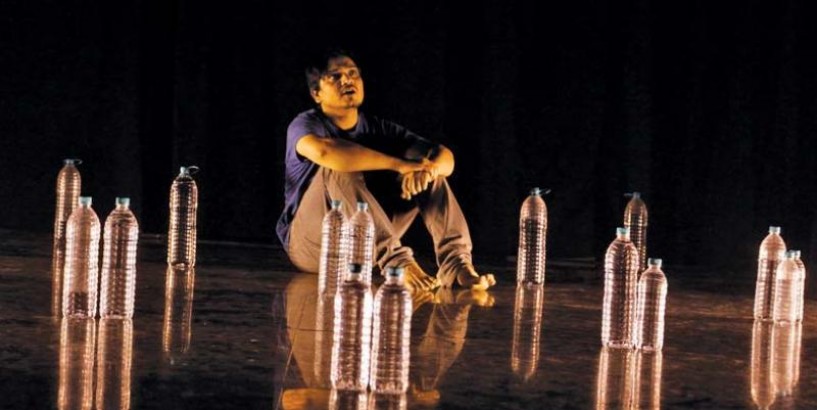From the start, she had wanted the play to be devised from her experiences rather than make a play from the outsider’s angle. On her first visit to the city last year, German dramaturge Verena Regensburger had a chance to attend a south Indian wedding. Understandably, she remembers being taken aback at the sight of “half naked men” serving food. “I was told it is a cultural thing and that the servers were Brahmins,” she recalled over phone from Germany. Chatting at a ridiculous hour of late night and early morning (both, for her and me, as she joked - “two crazy women”), Regensburger talked of her time spent in BangaloREsidency which is a collaboration between the Goethe-Institut/Max Mueller Bhavan and contemporary cultural spaces.
In her case, the Abhinaya Taranga, a theatre training school, hosted her stay and thus began a collaboration between her and three actors from the school; Vishal Patil, Ajay Sharma and Raghu Dayear. It resulted in the play My Name is I love you which is essentially the aspirations and struggles of the three actors that were discussed through the various discussions between the director and the actors. “I come from an acting school,” Regensburger said. “But instead of conducting workshops, I preferred writing the text of the play along with the actors. Sometimes, I wrote and they improvised it and so on.”
From the start, she had wanted the play to be devised from her experiences rather than make a play from the outsider’s angle. Coming back to the cultural shock, it exposed (pardon the pun) her to the castes prevalent in the Indian society and the role it plays in society. Swetha Shashank, who is doing the production of the play, said, “The play is about intercaste marriages; basically about how caste plays a big role as well as the typical male and female ‘role expectations’. It is also about the pressures of fulfilling these expectations.”
Regensburger graduated in Theatre Sciences as well as languages, literature and culture from the Ludwig-Maximilians University in Munich, Germany. During her studies, she did several internships at theatres to specialize in directing, video and stage designing. As a director, she and her team developed a theatre play wherein the stage became an experimental space for what is communicated consciously and subconsciously. Her fascination for the languages led to Regensburger consciously learning particular phrases in foreign tongues. “I try to learn something nice in a new language, like I love you, or my name is Verena and so on.” That led to the title which reflects her penchant for phrases to learn as well as an underlying message of love surpassing all barriers.
“We don’t really say something new in the play,” she pondered. “Instead, we highlight the way it is said. It is an ironic and a bit funny way of saying something and that is important.” The set, Regensburger explained, has a simple set design where the stage is decorated with plastic bottles. Until the end of the play, the bottles remain as props and provide a striking visual. “In fact, the light on the water bottles give a very interesting perspective,” Shashank added. But in the end, which the duo felt is the highlight, the bottles become analogies to the caste system. “The 2 litre bottles depict the Brahmins are at the top of the spectrum and at the other end are the small cups which represent the shudras,” Regensburger explained. Also explored in the play are the traditional and modern ways to deal with the caste system.
Talking about the gender roles, one question I ask Regensburger is the choice of three male actors. She laughed. “The actors were already selected by the school. When I found that they were only men, I decided to come back once more to direct one play with women. Or else, the actors could come to Germany. But that aside, the play does talk about the gender roles.”
What: My Name is I Love You
When and where: April 21, 7.30 pm, The Bohemian House (Ashok Nagar)
...









